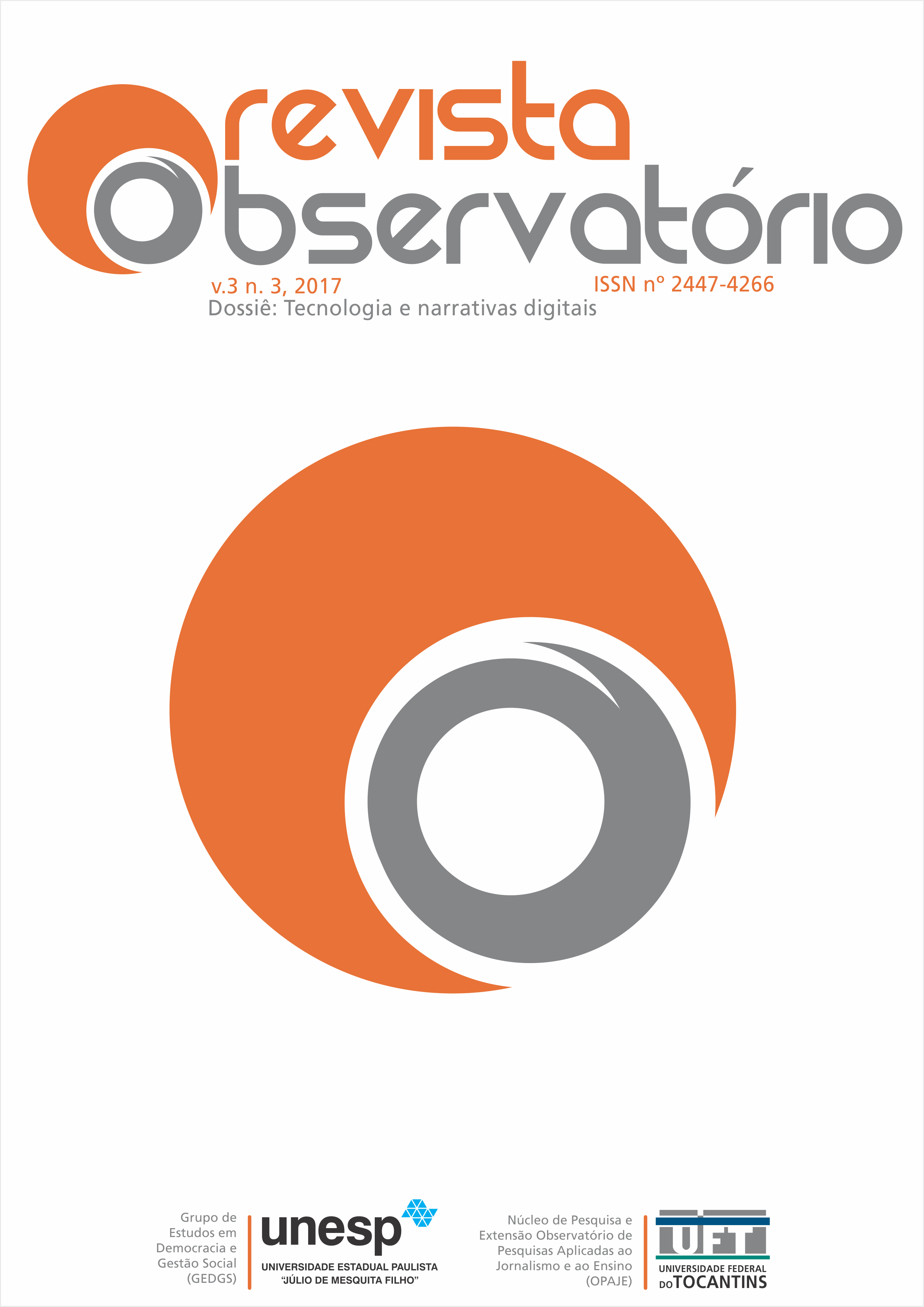ELIAS MACHADO DISCUSSED THE FORMATION OF THE TEACHER AND THE JOURNALISM STUDENT IN CONTEMPORARY
DOI:
https://doi.org/10.20873/uft.2447-4266.2017v3n3p619Keywords:
jornalismo, formação, comunicação, curriculoAbstract
PhD in Journalism from the Autonomous University of Barcelona (Spain), professor at the Federal University of Santa Catarina (UFSC) and coordinator of the Laboratory of Applied Research in Digital Journalism, journalist Elias Machado is a national reference when it comes to teaching Journalism. Machado has extensive experience in the areas of Theories of Journalism, Research Methodologies, Digital Journalism, and Printed. He has been a consultant to Adhesives (CAPES), (CNPq), (SBPJOR), (COMPÓS), (INTERCOM) and (FNPJ).In this interview, he discusses the shortcomings of education in the area in public and private colleges and warns: "We have to ensure that students spend less time in the classroom. We have to rationalize and integrate the disciplines so that more time for research and extension".He takes advantage of the conversation to discuss the implications that the new course guidelines, discussed and implemented in all universities in the country, can lead to career, as well as the dilemmas on practice and theory, laboratory production and teacher training, among Other dichotomies that afflict those who work with social communication, whether in the market, in research or in the classroom. In addition, Machado criticizes in this space of reflection, the researches that make a mere data analysis and encourage the applied studies. "Because criticism does not solve the problem of social demand." "If I studied and prepared I went to face the problems. It makes no sense for me to get to a place and say more of the same, people do not have to listen to more of the same."
Downloads
References
sem referências
Downloads
Published
How to Cite
Issue
Section
License
[PT] Autores que publicam nesta revista concordam com os seguintes termos:
1. Autores mantém os direitos autorais e concedem à revista, sem pagamento, o direito de primeira publicação, com o trabalho simultaneamente licenciado sob a Creative Commons Attribution License (CC BY-NC 4.0), permitindo o compartilhamento do trabalho com reconhecimento da autoria do trabalho e publicação inicial nesta revista.
Leia todos os termos dos direitos autorais aqui.

